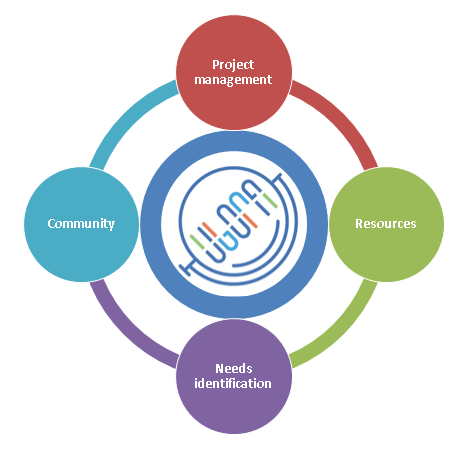Co-progettazione di dispositivi medici open source: un approccio per aumentare l’accesso alle cure sanitarie. L’esperienza del progetto UBORA
A seminar by prof. Arti Ahluwalia and prof. Carmelo De Maria from Pisa University
-
Date: 26 FEBRUARY 2019 from 11:00 to 15:00
-
Event location: Aula 2.4, Via dell’Università 50, Cesena
-
Type: Seminar

UBORA: Euro-African Open Biomedical Engineering e-platform for Innovation through Education è un progetto europeo coordinato dalla Prof.ssa Ahluwalia, il cui obiettivo è “… creating an e-Infrastructure, UBORA, for open source co-design of new solutions to face the current and future healthcare challenges of Europe and Africa, by exploiting networking, knowledge on rapid prototyping of new ideas and sharing of safety criteria and performance data”.
Nel pomeriggio è prevista una esercitazione pratica aperta a tutti gli interessati:
“Overview sulla MDR 2017/745 per la definizione delle classi di rischio e esercitazione sulla piattaforma UBORA”
Dalle 13:00 alle 15:00 in Aula 2.2 (Lab VeLa)
About the speakers
Arti Ahluwalia Professor of Bioengineering and Director of the Research Center "E. Piaggio", where she heads the In Vitro Models (IVM) Group and the NanoBioscopy Lab. She is also director of the Interuniversity Center for the Promotion of the 3Rs Principles in Teaching and Research (Centro 3R). Although highly multidisciplinary in nature, her research has centered on the interaction between biological systems and man-made devices or structures focused on the creation of organ and system models in-vitro using soft and smart materials, cells and tissue derivatives, cell imaging, computational models and intelligent bioreactor design as a way towards understanding tissue cross talk and how this cross talk is used to orchestrate systemic physiology. The applications span from disease models to in-vitro alternatives to animal testing. In this context, her research experience encompasses cellular biotechnology, biomolecular films, surface engineering, and biosensing to microfabrication and biomaterials for tissue engineering. The work on organ models, sensors, biosensors and tissue engineering is undertaken in collaboration with a number of biological and clinical scientists at the Institute of Clinical Physiology (CNR) and the Department of Translational Medicine and is testament to the transdisciplinary nature of her research. Author of over 150 peer-reviewed publications and of several patents on microfabrication and on microfabricated multicompartment bioreactors, now commercial products of 2 companies (Kirkstall Ltd, IVTech srl.) she co-founded. Current projects are on tissue regeneration, biosensing, bioreactors, in-vitro models of metabolic disease and ageing (MIND), biomimetic systems for the replacement of animal tests and nanotoxicology (InLiveTox), advanced imaging (DataBrain) and open biomedical engineering in education (UBORA, ABEM).
Carmelo De Maria Assistant professor at the Department of Information Engineering of University of Pisa, since November 2016. His research is focused on the integration of different additive manufacturing technologies, such as hydrogel plotting, inkjet printing and 3 electrospinning. Other research interests are in computational fluid dynamic and mechanical finite element modelling and in the development of bioreactors for mechanical stimulation on cell cultures. In parallel, he’s advocating the Open Source approach in the development of biomedical devices, as co-organizer and lecturer of the Innovators’ Summer School, under the sponsorship of the United Nation Economic Commission for Africa (UNECA). In the context of this activity, he participated to the “Expert group meeting on the development and management of a Regional Innovation Platform” organized by UNECA on 9-10 January 2016, and he’s member of the Secretariat of the African Biomedical Engineering Consortium.